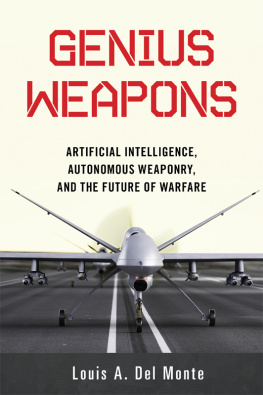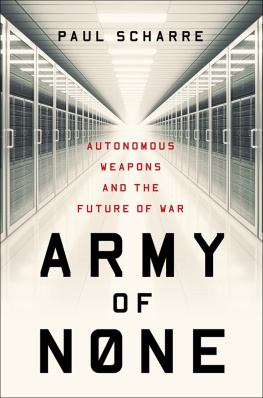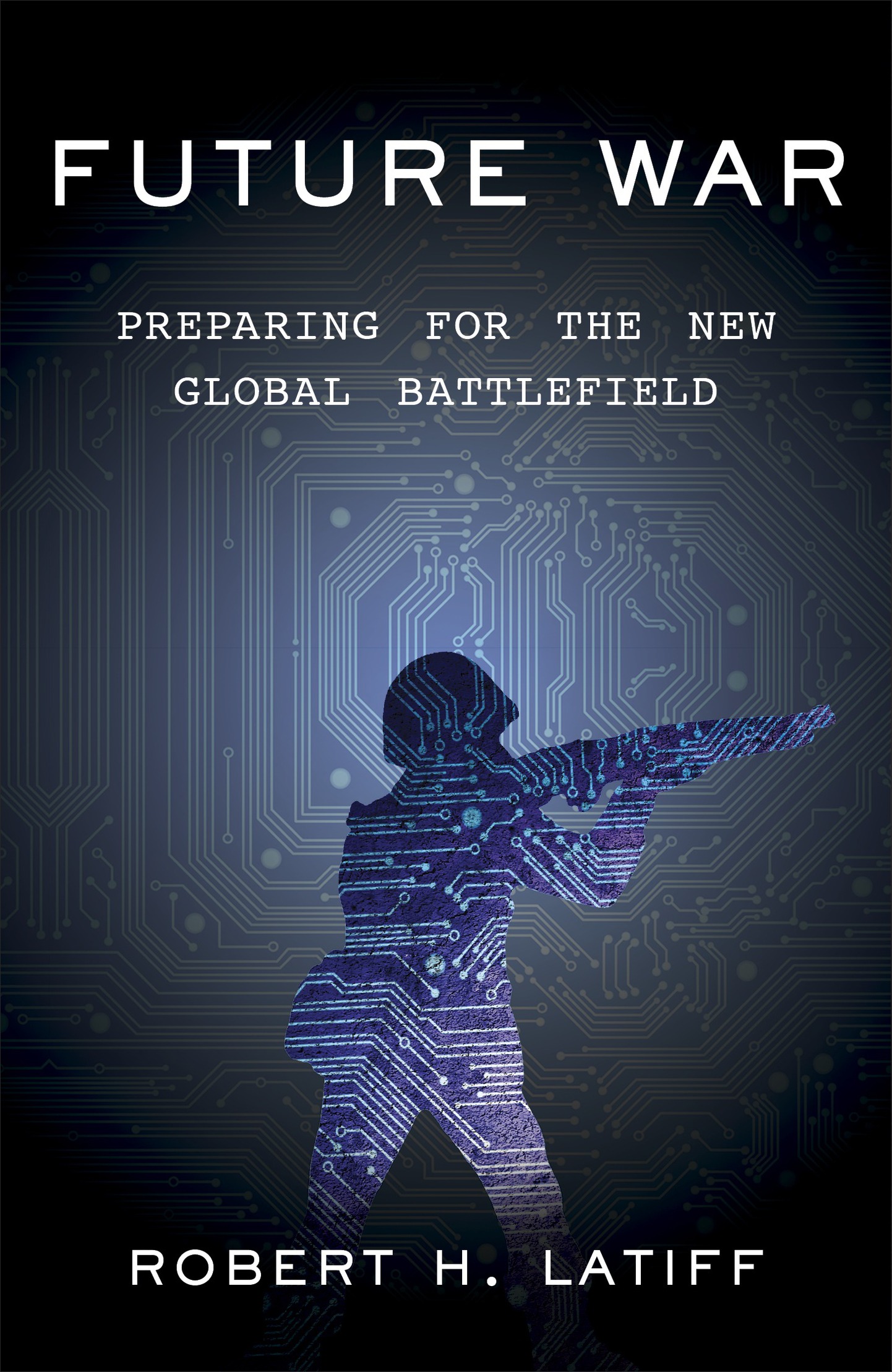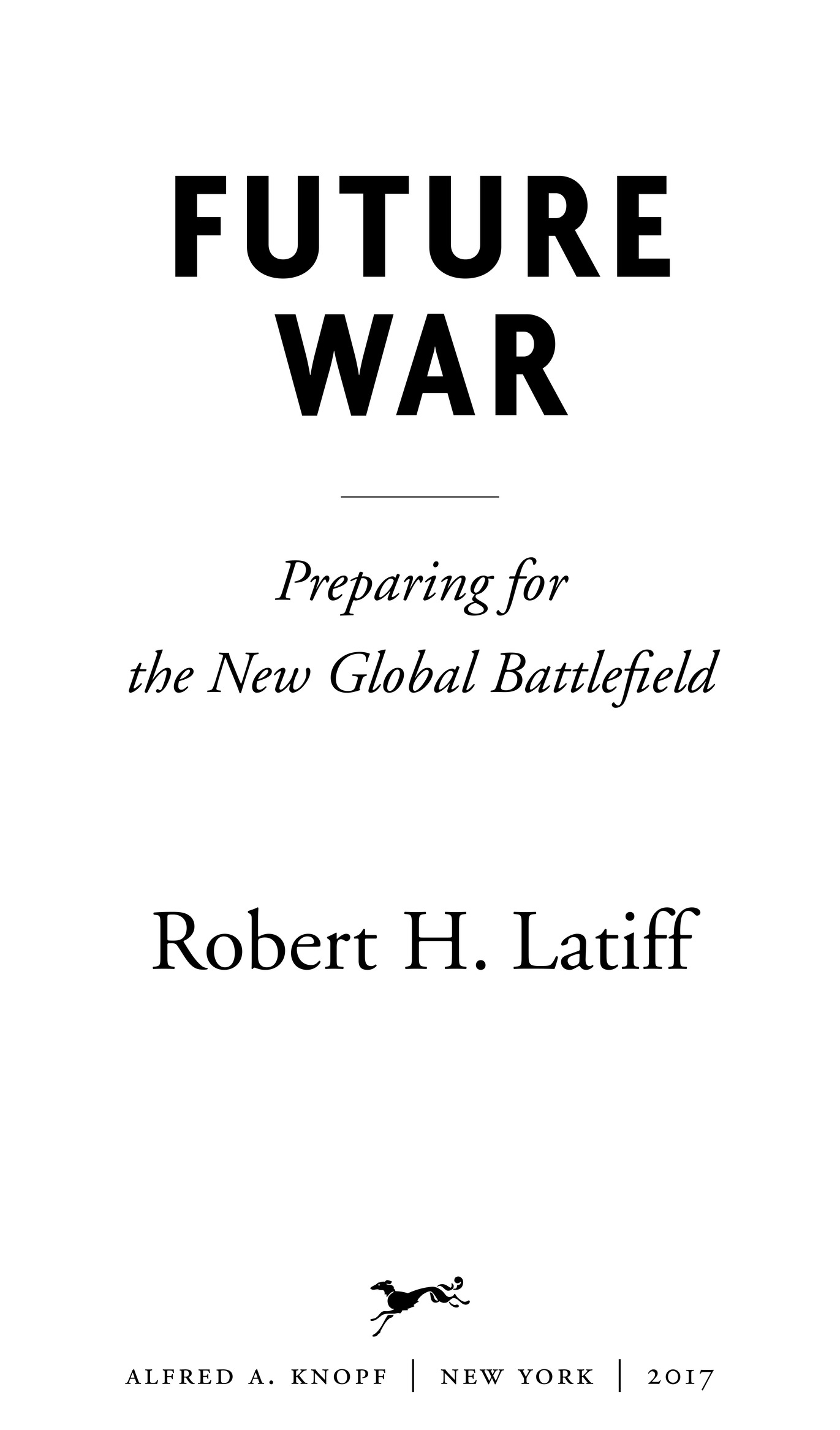THIS IS A BORZOI BOOK
PUBLISHED BY ALFRED A. KNOPF
Copyright 2017 by Robert H. Latiff
All rights reserved. Published in the United States by Alfred A. Knopf, a division of Penguin Random House LLC, New York, and distributed in Canada by Random House of Canada, a division of Penguin Random House Canada Limited, Toronto.
www.aaknopf.com
Knopf, Borzoi Books, and the colophon are registered trademarks of Penguin Random House LLC.
Library of Congress Cataloging-in-Publication Data
Names: Latiff, Robert H., author.
Title: Future war : preparing for the new global battlefield / by Robert H. Latiff.
Description: Preparing for the new global battlefield | First edition. | New York : Alfred A. Knopf, 2017. | A Borzoi book. | Includes bibliographical references and index.
Identifiers: LCCN 2017002411 | ISBN 9781101947609 (hardcover) | ISBN 9781101947616 (ebook)
Subjects: LCSH: Military art and scienceUnited StatesHistory21st century. | Military art and scienceMoral and ethical aspects. | WarMoral and ethical aspects. | WarForecasting.
Classification: LCC U43.U4 L37 2017 | DDC 355.0201/12dc23 LC record available at https://lccn.loc.gov/2017002411
Ebook ISBN9781101947616
Cover image: chuyuss/Shutterstock
Cover design by John Vorhees
v4.1
ep
Contents
For my friend Jack Reilly
If we continue to develop our technology without wisdom or prudence, our servant may prove to be our executioner.
Ours is a world of nuclear giants and ethical infants.
G ENERAL OF THE A RMY O MAR N . B RADLEY , Armistice Day speech, November 1948
INTRODUCTION
ON A SWELTERING AUGUST DAY, following weeks of heightened tensions with Russia over its actions in Ukraine and Syria, and harsh words between the United States and China over actions in the South China Sea, and as workers are preparing to depart the cool of their air-conditioned Manhattan office buildings for the gridlocked highways and subways, several large electric power plants along the East Coast simultaneously experience dramatic over-speed conditions in their large turbine motors. Plant operators are unable to stop the steam turbines, whose automatic control and data systems have been infected by sophisticated computer malware, and they catastrophically tear themselves apart, cutting power to large segments of the population and industries in the Northeast. Building systems shut down, hospitals switch to emergency generators, trains stop running, traffic lights cease operation, and Wall Street trading comes to a halt. At the same time, eleven hundred miles to the south, a massive rocket sits fueled and ready to launch a critical national security satellite, when an explosive-laden private aircraft flies at low altitude into the Cape Canaveral launch area and, despite repeated warnings, slams into the pressurized fuel tanks and solid rocket motors, creating an enormous conflagration. Half a world away, elite commandos equipped with the latest high-technology equipment but unidentifiable as a national army attack U.S. and allied interests near areas of disputed territory. Thus are fired the opening shots of a new war.
These hypothetical events represent a radically different style of conflict, fought with new tools and against new and unfamiliar enemies. When most people think of war, they imagine soldiers doing battle with other soldiers, employing tanks, artillery, and other recognizable weapons. However, in this century war has morphed into something we can scarcely recognize, and future conflicts will be qualitatively and quantitatively unlike those of the past. They will be fought using innovative and unusual weapons, many of which, because the technologies have both civilian and military uses, will be available to far more people who are far less skilled in their employment. The so-called democratization of technology has diminished the monopoly of advanced countries on the tools of war.
Twenty-first-century armed conflicts often have no battlefield in the traditional sense. The concept of opposing armies clashing in deadly struggle but moderated by international conventions of behavior seems a thing of the past. In 1999, Chinese colonels Qiao Liang and Wang Xiangsui predicted that soldiers would increasingly be computer hackers, financiers, drug smugglers, and agents of private corporations rather than members of a military, and that their weapons would include not only airplanes, cannons, poison gas, bombs, and biochemical agents but also computer viruses, net browsers, and financial derivative tools. Their predictions were prescient.
Yesterdays wars were, like World War II, about saving civilized nations from maniacal dictators, or, like the conflicts in Vietnam and Korea, devoted to the clash of ideologies and the attempt to limit the spread of one hegemon over another. They were big affairs, involving large military forces and enormous violence. Todays wars are more about cultural and religious hatreds, using violence as a means to change the hearts and minds of people, among whom the killing occurs with more frequency. Tomorrows wars will be different still, fought largely for political dominance with stealth and cunning, targeting innocents and institutions, heavily dependent on information superiority, and employing strange new weapons.
While we have highly motivated and well-trained and -equipped armed forces that will adapt, we are not prepared as a nation to react well to the inevitably messy and ambiguous situations these new conflicts and weapons will present. We still have no clear idea of what constitutes an act of war in cyberspace nor of how we might respond to an attack. It is not enough for the military to be prepared. Neither the public nor its decision makers have yet fully comprehended the significance of the changes in the types of conflict and the tools with which they will be fought.
Without question there will be circumstances when decision makers will find it necessary, or at least think it necessary, to send soldiers into classic boots on the ground combat situations. We will continue to project force with our powerful aircraft, our munitions, and our aircraft carrier strike groups. When war is fought in foreign lands, it could well be against other high-tech enemies. However, war will increasingly be more personal and often fought closer to home. It will not lend itself to the traditional massive displays of U.S. firepower. It will affect individuals directly, not as some distant conflict we read about in newspapers or watch in the movies or on the Internet.
Americans will be targeted on U.S. soil, often, as we have seen in San Bernardino and Orlando, by homegrown terrorists. This form of war will be messy and complex, and it will not lend itself to quick, easy, sound-bite solutions. It may not even be clear for a while who perpetrated the violence against us. Was it state-sponsored, or a random act of terror? Will we unleash massive destruction on foreign countries in retaliation for attacks by terrorists residing on our own soil? If so, to what end? And with what consequences? There are always consequences, whether they be the death or capture of our own troops, unnecessary civilian casualties, or the incitement of more violence. Whether we respond in thoughtless, knee-jerk fashion, lashing out at the first available target, or with professional military efficiency will be determined by whether or not our leaders have the will and the intellectual capacity to think logically rather than act rashly. Too often we have been dragged by our political leaders into conflictsin Libya for instancewith too little analysis of the future ramifications.













